If you’re looking to build backlinks, chances are you’ve heard about guest posting and niche edits.
But which method will bring you the best results? That’s just what I’m gonna help you find out.
Read this detailed guide where I down everything you need to know about guest posting and niche edits.
Guest Posting Vs Niche Edits – Overview
What is Guest Posting?
When guest posting, you write content for another website to earn a backlink. It’s straightforward: you provide valuable content in exchange for a relevant link back to your site.
| Benefits | Drawbacks |
|---|---|
| ✔️ Full control over content and anchor text. | ✖️ Time-consuming to produce high-quality content. |
| ✔️ Builds your brand and thought leadership. | ✖️ Often involves lengthy outreach and approval processes. |
| ✔️ Typically offers higher-quality contextual links. |
What Are Niche Edits?
When making niche edits, you make a valuable edit to a website’s content and add a link back to your website.
| Benefits | Drawbacks |
|---|---|
| ✔️ Faster turnaround compared to guest posting. | ✖️ Less control over the context and anchor text. |
| ✔️ Often cheaper than commissioning new content. | ✖️ Potential risk if the linking site has low-quality practices. |
| ✔️ Targets pages already indexed and potentially ranking well. |
Key Differences Between Guest Posts and Niche Edits
Guest Posting Vs. Niche Edits – Quick Comparison
Here’s how these two methods stack up against each other on crucial SEO factors:
| Factor | Guest Posting | Niche Edits |
|---|---|---|
| Speed of Link Acquisition | Slow | Fast |
| Control Over Content | High | Limited |
| Relevance & Context | Excellent (you control it) | Good (depends on existing content) |
| Cost | Moderate to High | Lower |
| Risk of Penalties | Lower (with quality content) | Higher if not done carefully |
| Outreach Difficulty | High | Moderate |
| SEO Impact | Long-term | Immediate & long-term |
Guest posting is one of the best ways to build topical authority while building backlinks. It also gives you better control over anchor texts, and attracts relevant referral traffic. You pitch original, valuable content to targeted sites in your niche and embed a link back to your own content.
On the other hand, Niche Edits can get you quicker placements, and help you benefit from the existing rankings and traffic of established content. To get niche edit opportunities, you identify relevant articles and negotiate link placements directly with site owners.
Now, let’s look at these two methods in detail to help you decide what works best for you.
When to Choose Guest Posts or Niche Edits for Link Building
Here’s a simple framework to help you decide:
Choose Guest Posts if:
↳ You want to build authority and grow your brand.
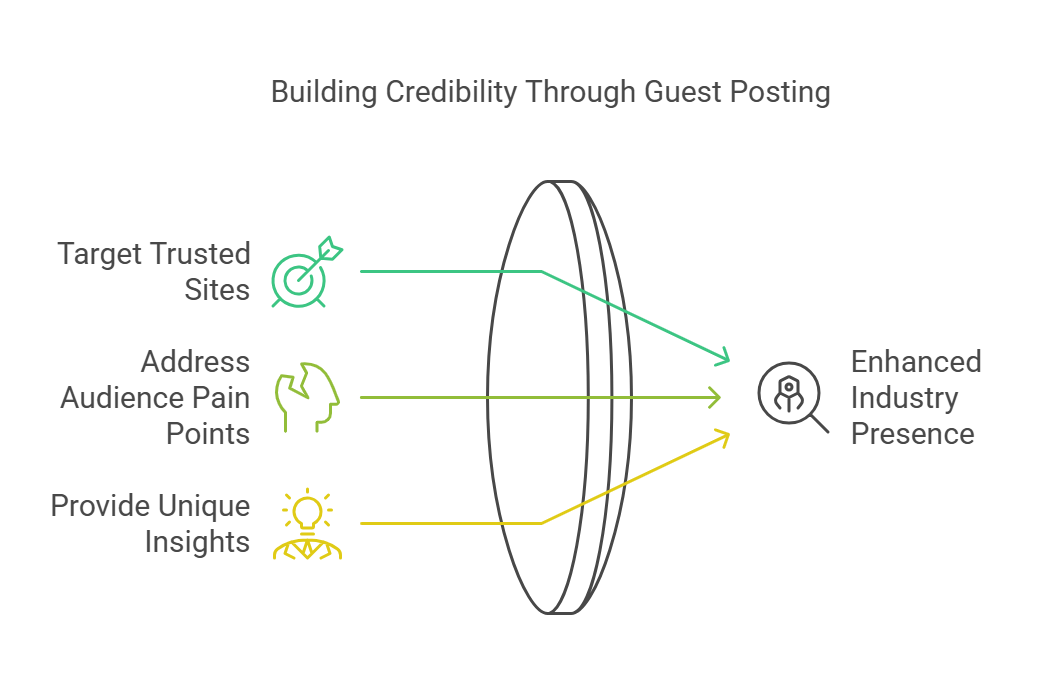
Guest posting isn’t just about backlinks. When I write a guest post, my goal is often broader—I want visibility, authority, and a stronger reputation within my industry.
It helps position you as a credible expert by associating your name with respected publications. But landing guest posts can be really difficult.
↳ You prefer having full control over content quality and context.
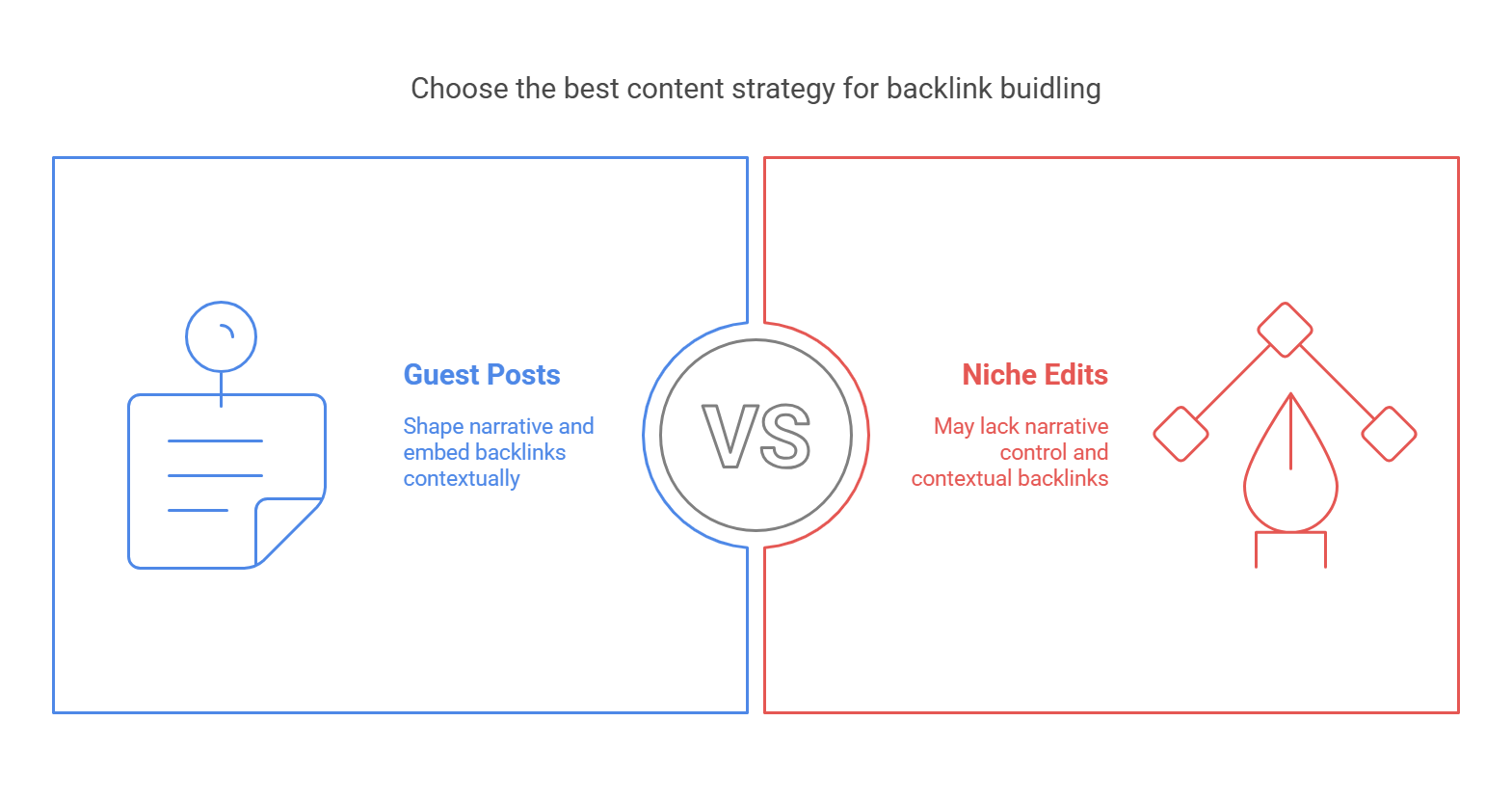
If the message, tone, and quality of the content are non-negotiable for you, go for guest posts. Personally, I prefer guest posting when I’m trying to present complex ideas or specific brand messaging.
When you guest post, you shape the narrative, which helps embed your backlinks within valuable, relevant context.
↳ You have the time and resources to produce high-quality content consistently.
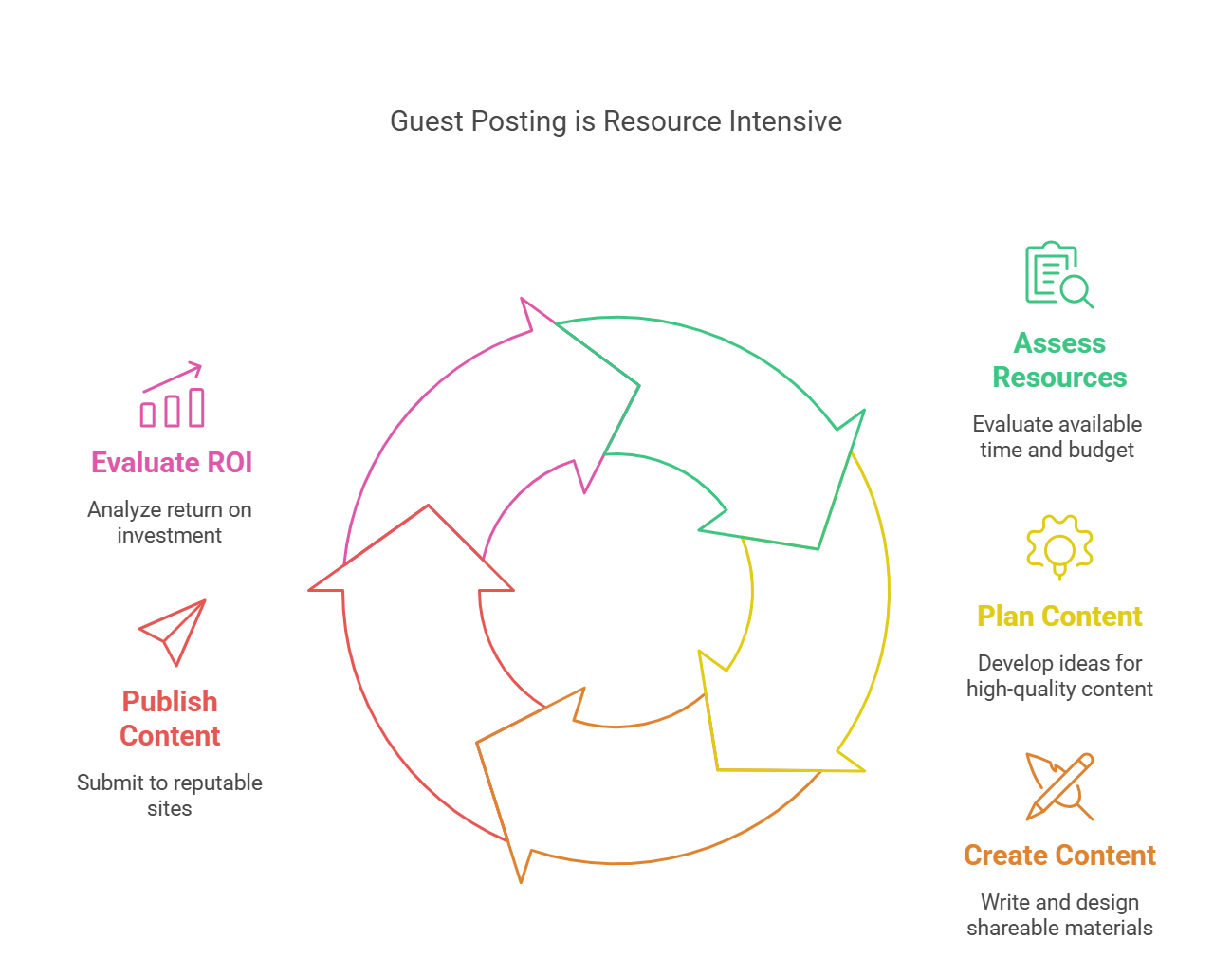
Guest posting is resource-intensive. Crafting content that reputable sites will accept takes research, writing skills, and significant time investment.
If you want good or even acceptable ROI on guest posting, you need to consistently produce top-tier, shareable content.
Choose Niche Edits if:
↳ You need quick, efficient results with fewer resources.
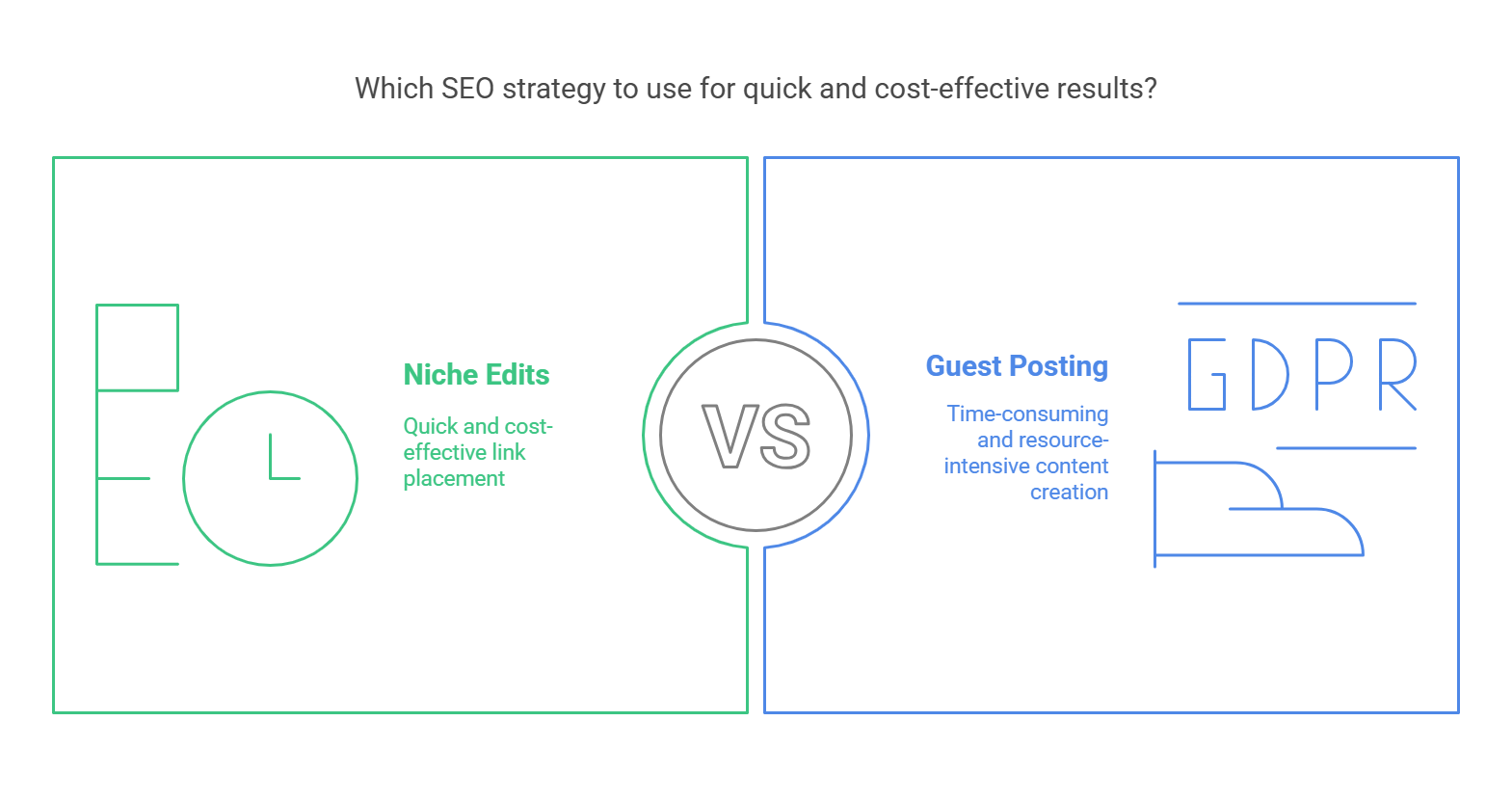
I prefer niche edits when time or resources are limited. They give you quick wins. Unlike guest posting, you don’t need to write entirely new articles for niche edits.
Instead, you place your link into existing articles that already rank and receive traffic. This is a lot faster and cost-effective.
↳ You want backlinks from already ranking, proven content.
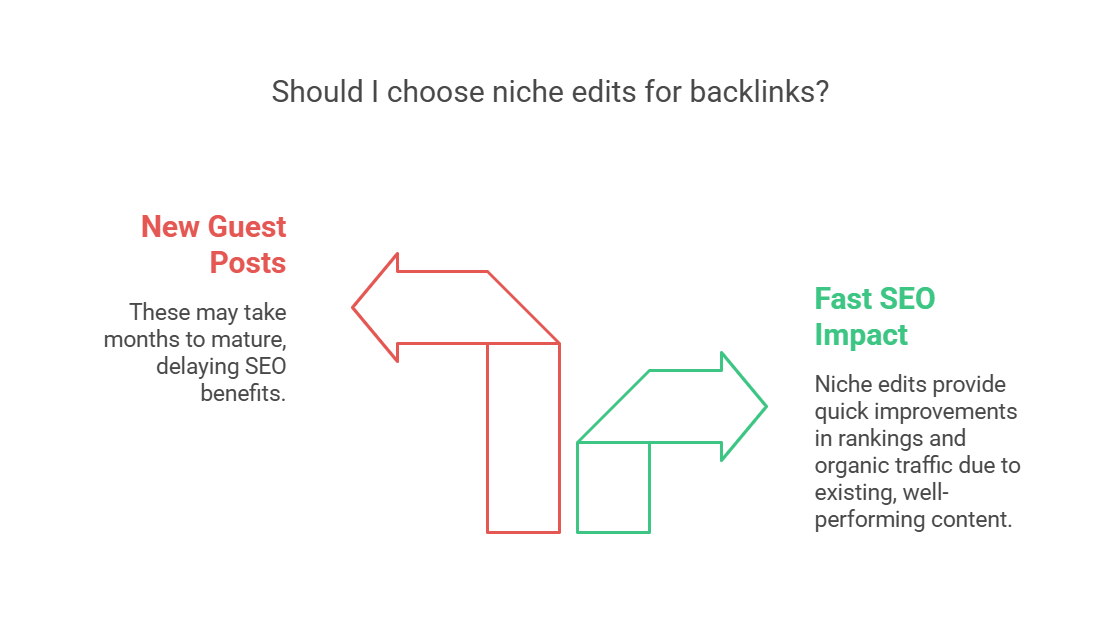
If you want a fast SEO impact, I suggest diverting your efforts and energy into niche edits. It’s a lot more effective because the content you’re targeting already performs well.
Adding backlinks to pages that already rank well usually improves your rankings and traffic faster than writing new guest posts, which can take months to show results.
When choosing pages for niche edits, I always analyze metrics like organic traffic, keyword rankings, topical relevance, and domain authority first. Of course, you don’t want to target pages that don’t have much going on for themselves.
↳ You don’t have a big budget.
Niche edits often cost significantly less than guest posts. You save on content creation and writer fees. That’s why I suggest niched edits for small teams or businesses with a small link-building budget.
However, cheaper isn’t always better. Always prioritize quality.
Make sure your links get placed naturally in the target content and are contextually relevant. Also, target credible sites, or else there’s no point. Cheap, low-quality niche edits can harm your SEO in the long run, so be mindful.
On a side note, you should check out these backlink building tools if you’re on a budget.
How to Get the Most Out of Guest Posts and Niche Edits?
Here are some quick tips that can help you get juicy backlinks– whether you’re doing guest posts or niche edits:
↳ Always Put Quality over Quantity
More backlinks are not always good for your site– they can even be harmful. On the other hand, a few backlinks from high-authority, trusted sites deliver more SEO value than dozens of mediocre ones.
Focus your efforts on securing fewer, high-quality placements. Aim for reputable, industry-specific sites where your target audience already spends time, and you’ll see stronger, lasting impacts on your rankings and traffic.
To make sure a referring domain has good authority, check its Authority Score in Semrush.
Open the Domain Overview tool and enter the target domain in it. Hit Search.
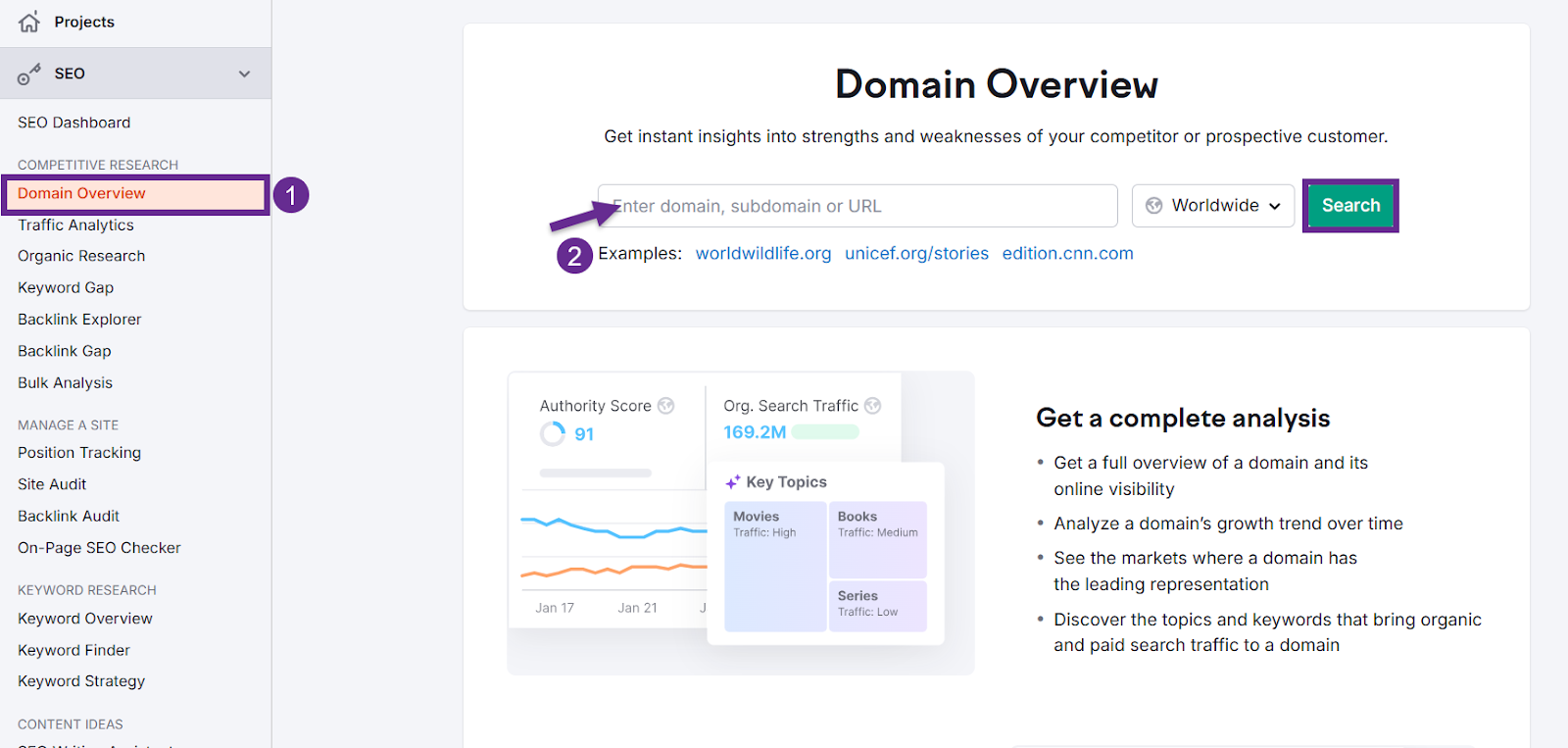
Look at the Authority Score. Anything above 60 is great. 40 to 50 is good. Lower than 30 isn’t great but Authority Score shouldn’t be the only deciding factor. If everything else makes sense (like the site’s relevance to your niche, its legitimacy, etc., then maybe go for it).
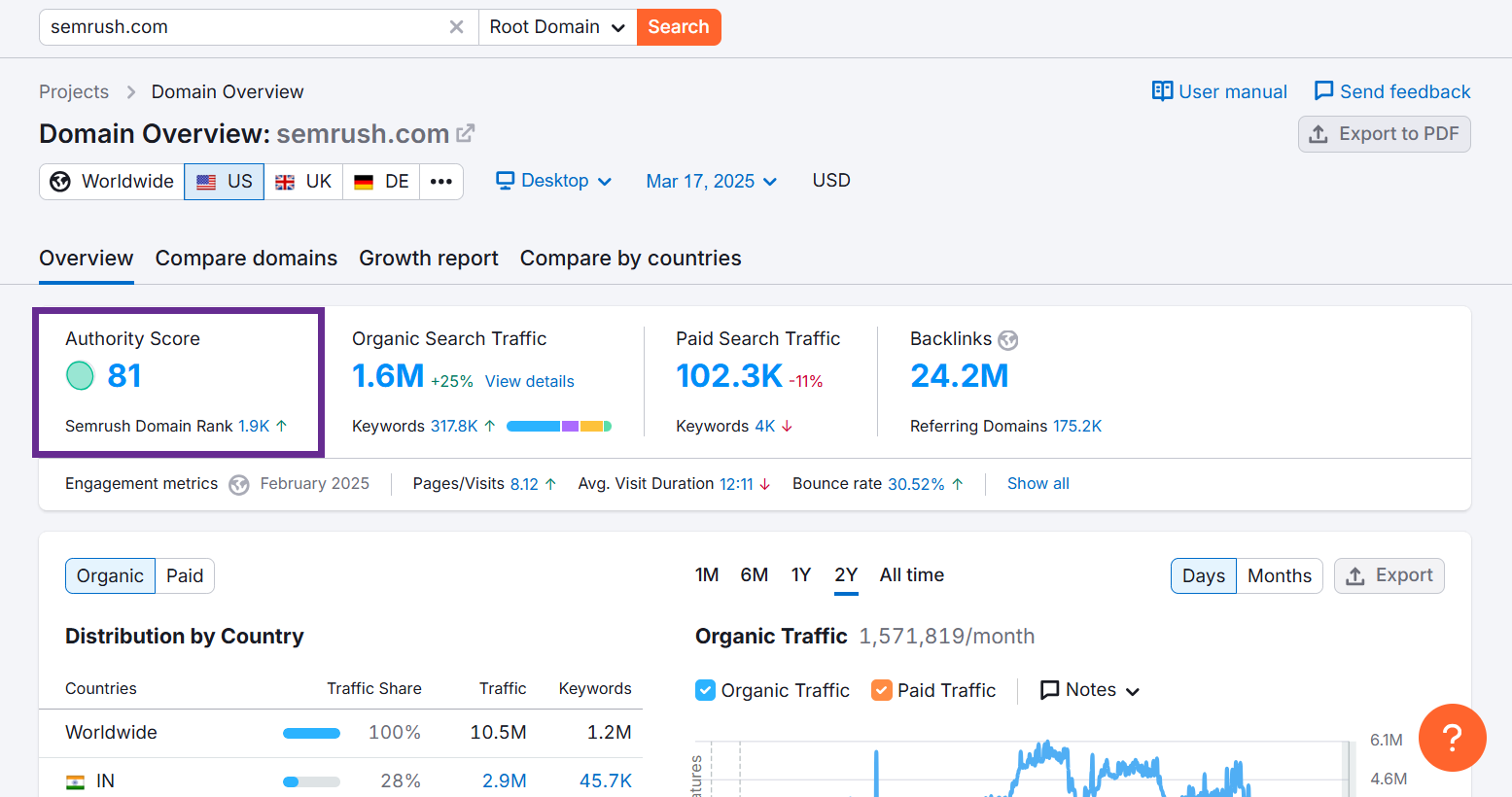
↳ Evaluate Authority and Relevance Carefully
While high domain authority (DA) is attractive, relevance is just as important.
I’ve got serious ranking boosts by securing backlinks from highly relevant, mid-authority niche sites.
Always target websites closely related to your niche or audience, even if their authority metrics aren’t impressive at first glance. Google values relevance deeply, and these highly targeted links can seriously boost your topical authority and trustworthiness.
You can learn more about checking backlink quality here.
↳ Diversify Anchor Text:
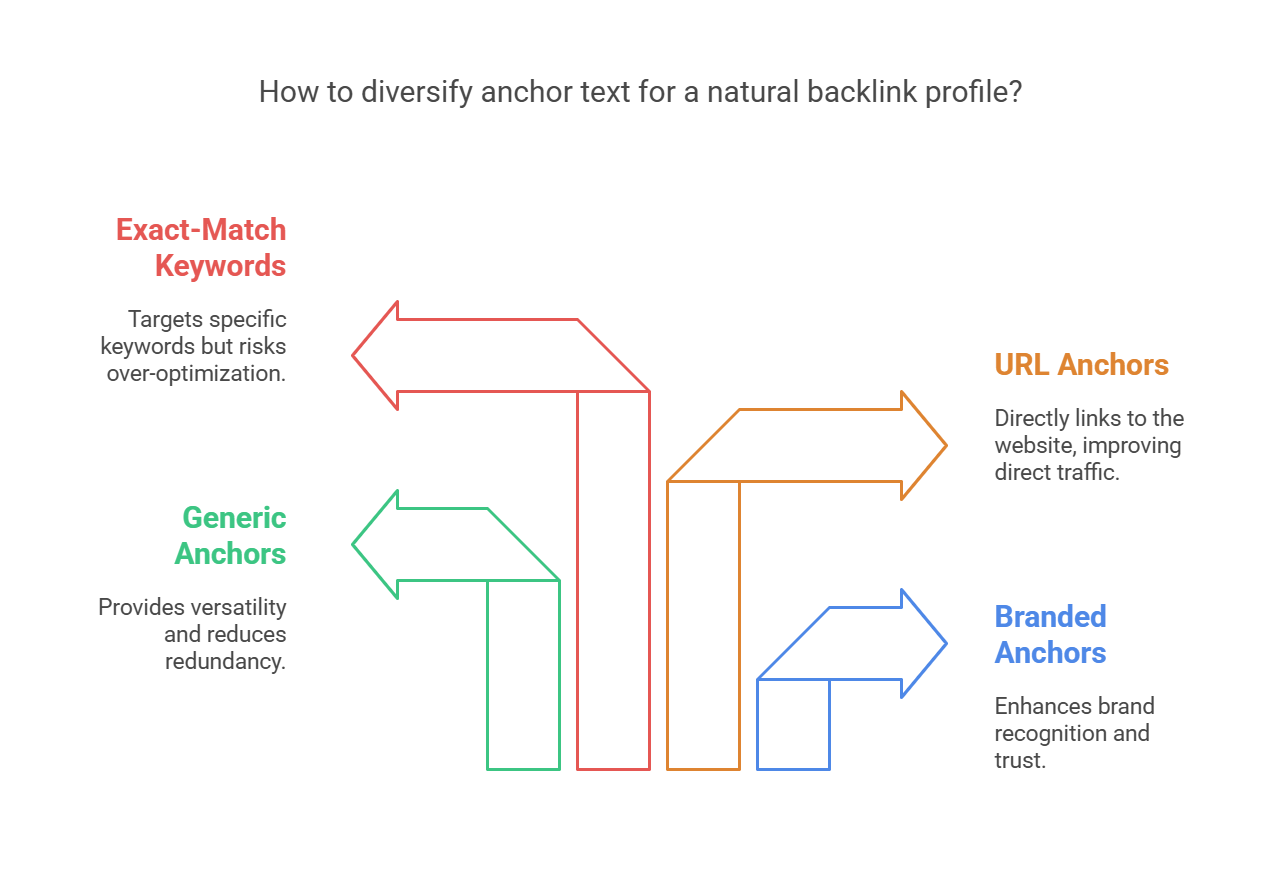
Aggressive, repetitive use of exact-match anchor text can trigger algorithmic red flags. To build a natural, healthy backlink profile, mix branded anchors (“YourBrand”), generic anchors (“click here,” “learn more”), URL anchors (yourbrand.com), and carefully selected exact-match keywords.
Aim for anchor text distribution that looks genuinely organic. I typically recommend no more than 20-30% exact-match anchors to maintain a natural-looking link profile.
↳ Prioritize Pages with Strong Traffic Potential
Aim to place backlinks on pages already ranking well or generating organic traffic– specially for guest posts.
It delivers quicker and better results in terms of referral traffic.
When assessing potential niche edit opportunities, analyze the page’s current rankings, keyword performance, and organic traffic potential. I use Semrush for it.
Just run the domain through Semrush Domain Analysis and look at the organic traffic.
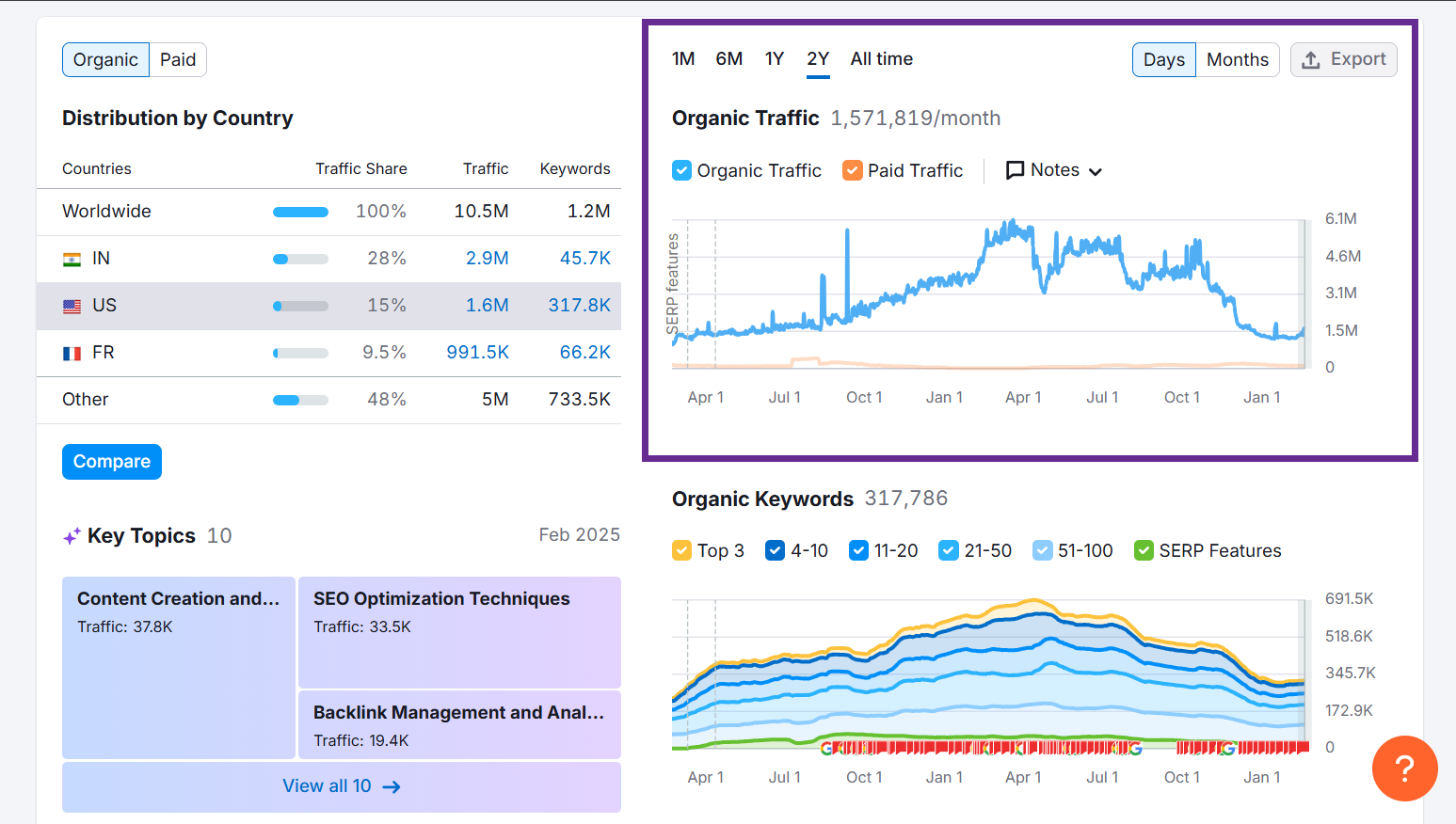
High-performing pages are more likely to send significant referral traffic and pass genuine ranking power.
↳ Personalize Your Outreach
Generic outreach emails rarely produce good outcomes. Publishers receive countless pitches every day.
To stand out, clearly explain how linking to your content will benefit their readers. Reference specific details from their site, mention recent articles, and show genuine appreciation for their work.
Personalized pitches dramatically increase response rates and open doors to high-quality, lasting relationships with publishers.
↳ Avoid Over-Optimization
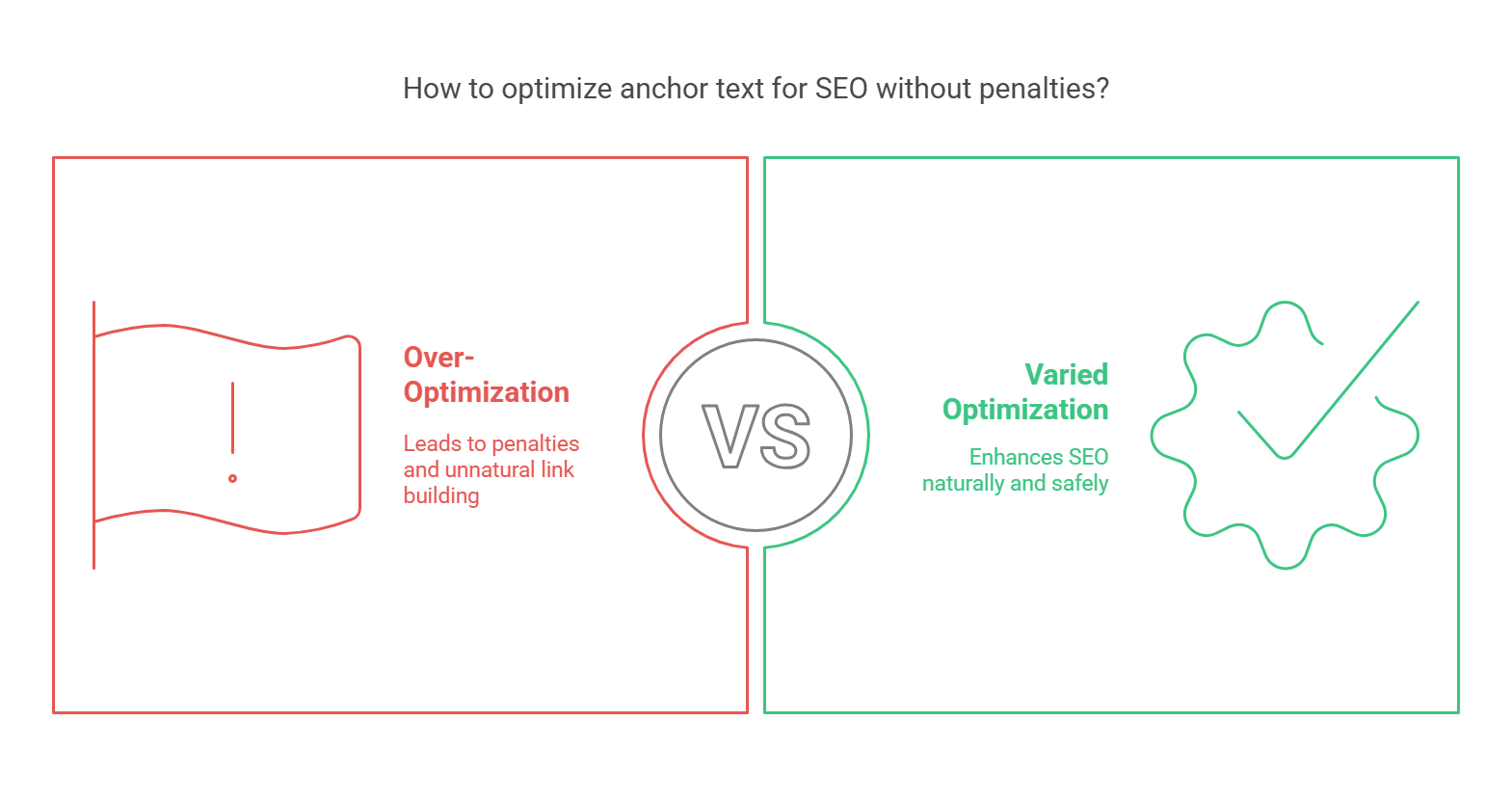
Early in my career, I made the mistake of repeatedly using the same optimized anchor text, hoping to boost keyword rankings faster.
The opposite happened—it raised red flags for unnatural link building.
So, keep your anchors varied and contextually natural. If you find yourself repeatedly using the same anchor, consciously mix it up to avoid algorithmic penalties.
↳ Audit Your Backlinks Regularly
A healthy backlink profile requires regular monitoring. I’ve seen even legitimate sites inadvertently accumulate toxic or suspicious links.
A periodic audit of your backlink profile isn’t optional—it’s essential. I audit client profiles quarterly.
Identify any suspicious or toxic links, and remove or disavow them. Regular backlink audits keep your link profile clean, protecting your website’s long-term SEO health. I use SEMrush with Google Search Console to audit and maintain my link profile’s health.
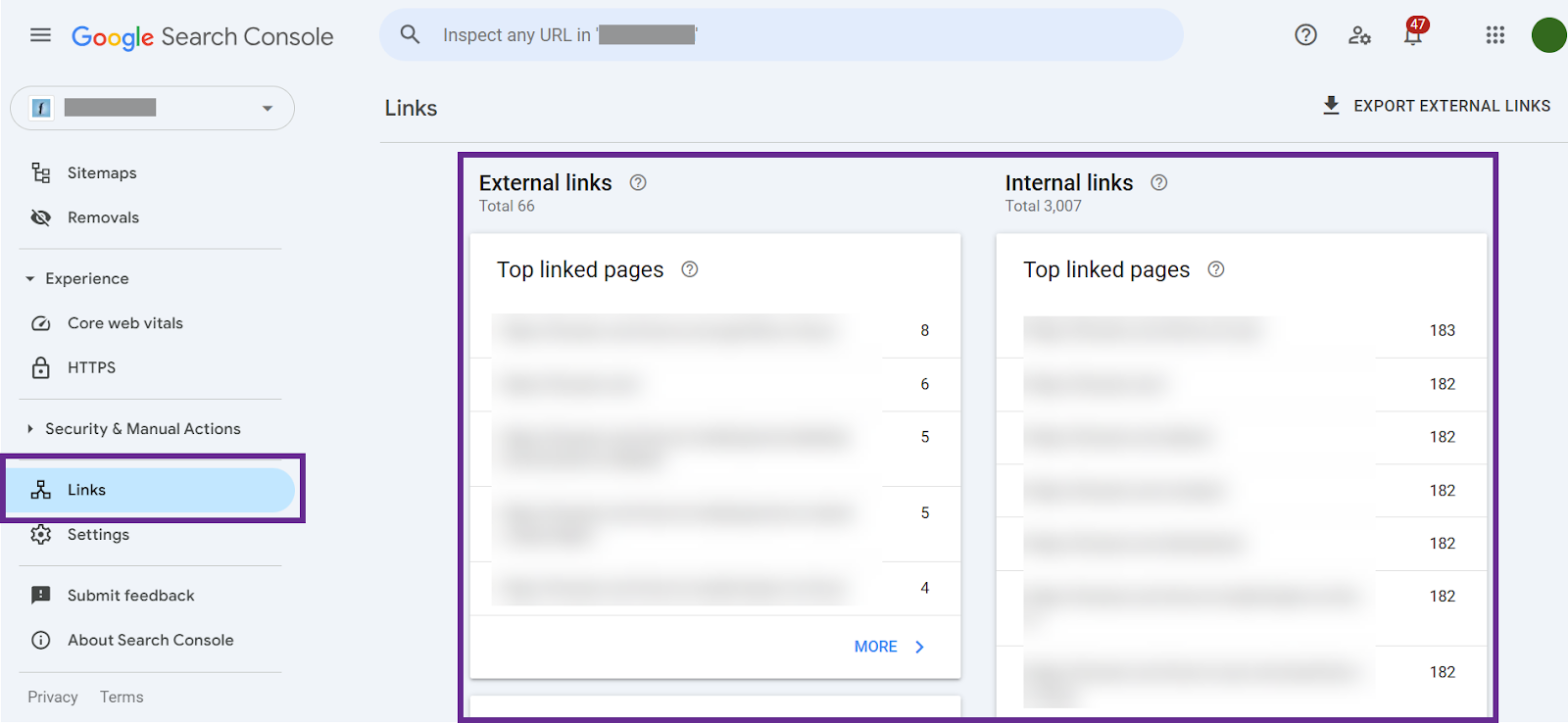
Check out this free template to audit your backlink profile effectively and efficiently.
Mix Guest Posts and Niche Edits for Best Results
Too many edits without new content might not be that effective and too many guest posts might strain your resources. So, it’s best to have a mix of both.
Here’s more to help you build quality backlinks:
↳ How to earn backlinks for an eCommerce website?
↳ Best international link building strategies.
↳ How to automate link building?
Frequently Asked Questions
In guest posting, “niche” refers to the specific topic or industry focus of both the guest author and the host website. Aligning niches ensures that the content is relevant to the target audience, enhancing engagement and SEO effectiveness.
A niche edit, also known as a curated link, involves adding a backlink to your website within existing content on another site. This strategy leverages the authority and established reach of the existing content, potentially offering quicker SEO benefits.
Yes, guest posting is beneficial for SEO. It involves writing articles for other websites in your niche to build backlinks, grow your audience, and enhance your authority.
Guest posting, or guest blogging, is the practice of writing and publishing content on another website as a guest contributor. This strategy helps in building backlinks, increasing rankings, and reaching a new audience.
To find your niche, identify your interests, expertise, and the needs of your target audience. Research market demand and competition to ensure sustainability. Defining your niche helps narrow down the type of content or services you should focus on.
An example of a niche is a blog focused on vegan recipes for athletes. This combines the broader topics of veganism and athleticism into a specific area targeting individuals seeking plant-based nutrition to enhance athletic performance.
A niche refers to the specific topic or area of focus, while the audience is the group of people interested in that topic. For example, a niche could be “eco-friendly fashion,” and the audience would be individuals interested in sustainable clothing choices.
Niche features are the distinct characteristics or specialized aspects that define a particular market segment or topic. These features cater to specific interests, needs, or preferences of a targeted audience within that niche.
Content for a niche is tailored material that addresses the specific interests, problems, or desires of a targeted audience. This focused approach ensures relevance and engagement, positioning you as an authority within that particular segment.
Businesses, bloggers, and marketers aiming to expand their reach, build authority, and improve SEO rankings benefit from guest posting. By contributing valuable content to relevant sites, they can tap into new audiences and enhance their online presence.
Yes, guest posting can lead to earnings by driving traffic to your site, increasing product or service sales, and enhancing brand visibility. Some platforms may also pay for high-quality guest content, depending on their guidelines and budget.
Guest posting is worth it as it helps build backlinks, enhances authority, and drives targeted traffic to your site. When executed strategically, it contributes to improved SEO performance and broader audience engagement.
To start guest posting, identify reputable websites in your niche that accept guest contributions. Craft tailored pitches showcasing your expertise and propose relevant topics. Upon acceptance, create high-quality content that provides value to the host site’s audience, adhering to their guidelines.
